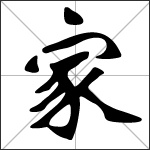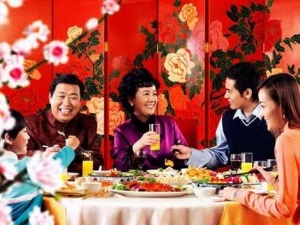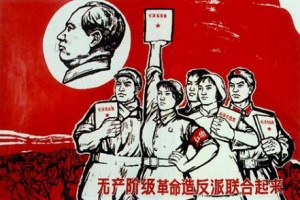From The Peopling of New York City
Chinese Family Structures
The traditional Chinese ideal of family (家) (jia) was that of "three generations living under one roof."
Family planning was instituted as national policy in 1979 to control China's massive population. It emphasized marrying late and having fewer children for the sake of economic development through increased access to minute resources for the population. Exceptions were and continue to be made for rural residents, national minorities, and parents who themselves grew up as only children. However, family planning is widely criticized in the West as inhumane, and the Chinese often criticize a generation of emperors and empresses that are doted on by the parents as well as two sets of grandparents. The individualistic tendency of this younger generation may continue to change the social fabric of Chinese families.[1]
The Chinese continue to emphasize the value of family and to maintain close family links. There is a strong bond between parents, children and other family members. It is still customary for Chinese parents to expect all of their children to return home for the Chinese New Year's Eve's dinner and other festival celebrations.
Mao Zedong once said that "women hold up half the sky".[2]
While Chinese men continue to occupy a dominant position in the family in terms of decision making, Chinese women are gradually acquiring greater equality with men, since they are becoming more able to contribute to family income or to work in their family businesses. [3]


